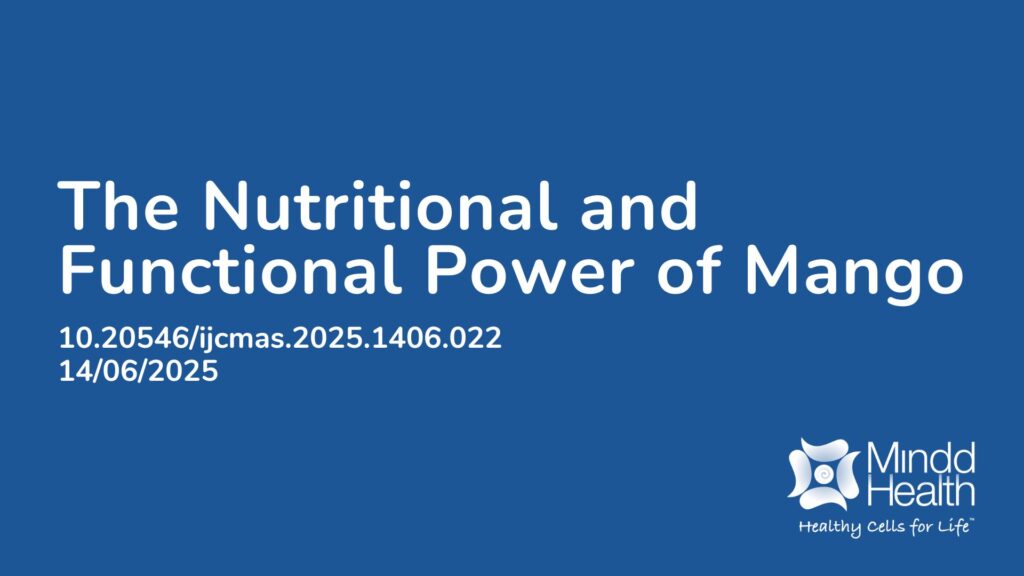Summary:
This paper is a comprehensive review of the health benefits of Mango (Mangifera indica L.). Growing interest in plant-based diets has highlighted fruits not only as sources of essential nutrients but also as rich sources of bioactive compounds with potential therapeutic effects. Mango, widely cultivated across tropical and subtropical regions, is notable for both its nutritional value and diverse phytochemical profile. Mango provides carbohydrates, fiber, vitamins A and C, folate, and minerals, alongside a wide range of bioactive compounds. These include polyphenols, carotenoids, flavonoids, tocopherols, and the unique xanthonoid mangiferin, which has demonstrated antioxidant, anti-inflammatory, and antidiabetic properties. Phytochemicals are also found in the leaves, peel, and seeds, supporting their traditional use in medicine. The health benefits of mango and its bioactive compounds are broad. Evidence suggests protective effects against colon cancer and cardiovascular disease, improved gut health, enhanced immune function, metabolic regulation, and potential other anticancer and neuroprotective properties. Mango also supports skin and hair health and offers protection against oxidative stress through its antioxidant content. Unripe mangoes are particularly rich in vitamin C, strengthening immunity. Together, the combination of essential nutrients and bioactive phytochemicals makes mango a valuable functional food. Its complex biochemical composition and health-promoting properties position it as an important focus for further research in food science, nutrition, and nutraceutical development.
Abstract:
Mango or Mangifera indica L., is a popular tropical fruit that is known for its flavour, vital nutrients, and potentially healing bioactive components. This review explores its biochemical composition, including carbohydrates, proteins, flavonoids, and other phytochemicals. It highlights mango’s enzymatic activities, antioxidant mechanisms, and biosynthetic pathways. Health benefits including anti-inflammatory, anticancer, and neuroprotective effects are discussed. The review covers applications in food, nutraceutical, and pharmaceutical industries. It also examines biochemical changes during ripening and postharvest processing. Technological advancements for improving shelf life and quality are addressed. The study emphasizes the need for further research on phytochemical bioavailability. Mango is positioned as a functional food promoting human health. Its potential role in preventive nutrition is significant for future wellness initiatives.
Article Publication Date: 14/06/2025
DOI: 10.20546/ijcmas.2025.1406.022



